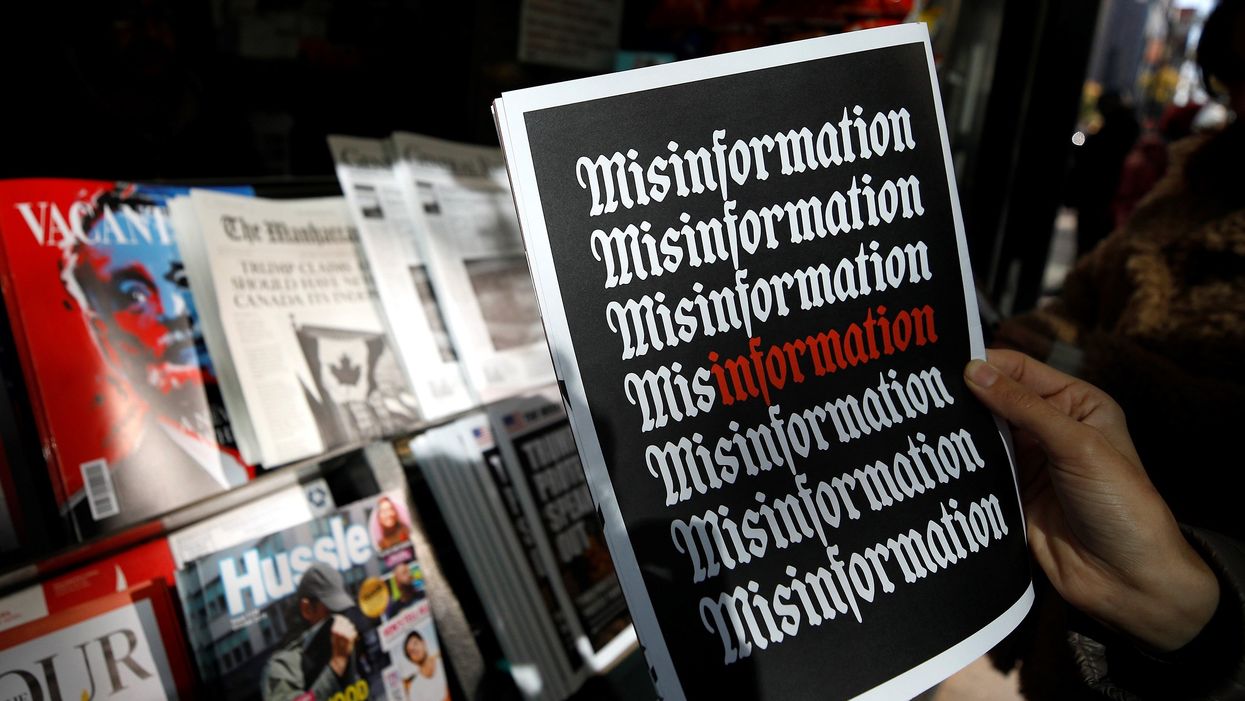
Atilgan Ozdil/Anadolu Agency/Getty Images

Poynter had suggested that advertisers base business decisions on this list
The Poynter Institute, an organization that claims to be "the world's most influential school for journalists," has taken down their "Index of Unreliable News Websites" after determining that the list itself was unreliable.
On Tuesday, Poynter published a list of 515 news websites it viewed as being "unreliable."
Even though Poynter claimed that its list was of "only sites whose stories are demonstrably false — not merely biased or partisan," it seemed to single out many conservative leaning websites. CNSNews, the Daily Caller, the Daily Signal, the Daily Wire, the Drudge Report, Live Action, LifeSiteNews, Newsmax, RedState, the Washington Free Beacon and TheBlaze were all listed for a variety of reasons, including "bias," "unreliable," and "clickbait."
The Washington Examiner was also initially listed, but was later removed. The Examiner's Seth Mandel tweeted on Wednesday that this was "woefully insufficient."
But while conservative sites were listed in abundance, many staunchly liberal websites like Alternet, Mother Jones, The Nation, and ThinkProgress were left off the list.
Beyond just being a flawed resource for casual news readers, Poynter also suggested that advertisers could use this list to pull funding from "unreliable" websites:
Advertisers don't want to support publishers that might tar their brand with hate speech, falsehoods or some kinds of political messaging — but too often, they have little choice in the matter.
Most ad-tech dashboards make it hard for businesses to prevent their ads from appearing on (and funding) disreputable sites. Marketers can create blacklists, but many of those lists have been out-of-date or incomplete.
Aside from journalists, researchers and news consumers, we hope that the index will be useful for advertisers that want to stop funding misinformation. [emphasis added]
In its methodology section, Poynter said that it compiled this list of websites from "existing site lists, curated by academic and journalists." It added, perhaps too trustingly, "[f]or now, we depend on their expertise for accuracy."
Poynter said it manually removed Alternet, Cato, the Heritage Foundation (but not the Daily Signal, a Heritage Foundation publication), National Review, the Daily beast, the Intercept, ThinkProgress, and the Weekly Standard from the lists it borrowed to make this list, determining that while these sites were "highly politicized," they "were mostly not fake."
Although the list has been deleted from Poynter's website, it can still be accessed using the internet archive Wayback Machine.
On Thursday evening, Poynter pulled the list and issued an apology.
"Soon after we published," editor Barbara Allen wrote, "we received complaints from those on the list and readers who objected to the inclusion of certain sites, and the exclusion of others. We began an audit to test the accuracy and veracity of the list, and while we feel that many of the sites did have a track record of publishing unreliable information, our review found weaknesses in the methodology. We detected inconsistencies between the findings of the original databases that were the sources for the list and our own rendering of the final report."
The list may not be gone forever, though. Allen said that Poynter had decided to remove the list "until we are able to provide our audience a more consistent and rigorous set of criteria."
She also said that the list "was not intended to be definitive or all encompassing," a statement that seems to run contrary to its encouragement for advertisers to use this list to make business decisions.
But deleting the list and issuing an apology fails to answer the question of why such a list, with a message marketing it to advertisers, was ever published in the first place.